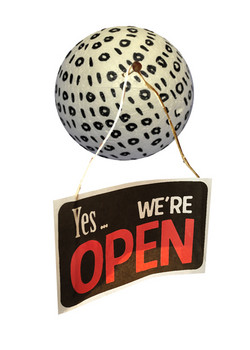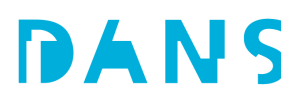LICENSING AGREEMENTS
Licensing agreements
One of the most effective ways of communicating permissions to potential reusers of data are licences. | DCC,2014

The clear indication of rights for reuse is an important condition to comply with the R (Reusable) in FAIR data management. A licence agreement is a lawful instrument that determines in advance what users and computers are allowed to do with (meta)data, software, code and databases. This section discusses possible licences.
Creative Commons licences for data
The clear - and machine-readable - indication of rights for reuse is an important condition to comply with the R (Reusable) in FAIR data management. With Creative Commons licences (2017) this is possible. The main features of using Creative Commons licences for licensing data, datasets and databases are:
- The ease of use of the licences;

- The wide dissemination and high awareness of the licences;
- Their availability in both machine-readable forms as well as in a form that can be read by humans. In this way, both researchers and computers know immediately what they are allowed to do with the data;
The above characteristics increase the likelihood that licensed data or software will actually be reused. In order to make reuse of datasets and software as probable as possible, it makes sense to choose a licence within the CC licences that:
- Makes the research data available to as wide an audience as possible;
- Enables the widest possible use.
The holder of a database can use a Creative Commons licence to allow use that could cause problems under database law.
CC0 for the R in FAIR
The CC0 Public Domain Dedication licence (Creative Commons, n.d.a.) has been specially designed to remove legal and technical obstacles to the reuse of research data. A blog by Dryad (2011) explains in detail why CC0 is essential if you want to facilitate data reuse. What the message of this blogpost comes down to is that you can make reuse difficult or even impossible if reusers want to combine different datasets and the licences don't match.
Creative Commons has collected a list of examples of organisations that use CC0 (Creative Commons, n.d.b.).
Licences for software and code
Creative Commons licences aren't suitable for software. Other licences exist for this purpose, (GitHub, n.d.) such as:
- MIT License (Open Source Initiative, n.d.a.);
- Apache Licence 2 (Open Source Initiative, n.d.b.);
- GNU General Public Licence 3 (GNU, n.d.).
![]()
In the spotlight
When publishing data in a data archive, a license is granted. A license agreement is a legal arrangement between the depositor of the data and the archive, which states what a user may do with the data.
- DANS
DANS has a license agreement for publishing data in DANS Data Stations (DANS, 2023 - I. Licences and Access Conditions). Datasets for which the access category Open Access (CC0 Waiver) has been chosen can be downloaded and used by anyone without any restrictions. Datasets in the Open Access for Registered Users or Restricted Access access categories can only be downloaded and used by registered users. - 4TU.ResearchData
When publishing data in 4TU.ResearchData, the depositor chooses a license. The website explains the possible and recommended licences for data and for software and code (4TU.ResearchData, n.d.).
Need help choosing a license? Take a look at the following tools:
- The license selector helps you choose the right license for data or software (License Selector, n.d.).
- Do you only want to license open source software? Then use 'Choose a license (GitHub, n.d.).
4TU.Centre for Research Data (n.d.). Licensing. https://researchdata.4tu.nl/en/use-4turesearchdata/archive-research-data/upload-your-data-in-our-data-archive/licencing/
DANS (n.d.). DANS Data Stations. https://dans.knaw.nl/nl/data-stations/
DANS (2023). DANS Data Station Policy. https://dans.knaw.nl/wp-content/uploads/2023/03/DANS-Data-Stations-Policy.pdf
DCC (2014). How to License Research Data. http://www.dcc.ac.uk/sites/default/files/documents/publications/reports/guides/How_To_License_Research_Data.pdf
Creative Commons (2017). Creative Commons licenties. https://creativecommons.org/licenses/
Creative Commons (n.d.a.). CC0 - "No rights reserverd". https://creativecommons.org/share-your-work/public-domain/cc0
Creative Commons (n.d.b.). CC0 use for data. https://creativecommons.org/share-your-work/public-domain/cc0
Github (n.d.). Choose a license. https://choosealicense.com/
GNU (n.d.). GNU general public license. https://www.gnu.org/licenses/gpl-3.0.en.html
License Selector (n.d.). http://ufal.github.io/public-license-selector/
Open Source Initiative (n.d.a.). The MIT license. https://opensource.org/licenses/MIT
Open Source Initiative (n.d.b.). Apache License, version 2.0. https://opensource.org/licenses/MIT
